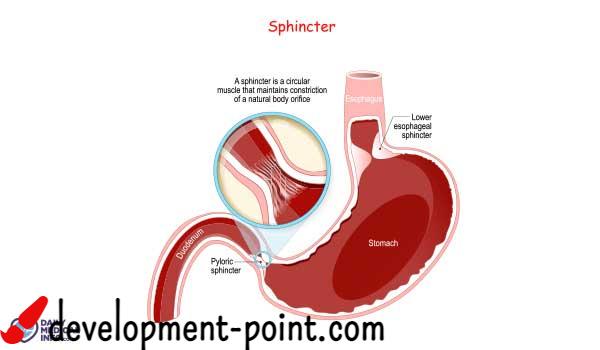What is the immune response and how does the immune system defend your body?
The immune system is one of the important systems in the body. It is the immune fortress that defends you strongly against any microbes that may cause you diseases, in addition to its other functions that help the body get rid of any toxic or allergenic substances, using innate and adaptive mechanisms that detect any microbe. And then you kill it. So let’s get to know what the immune response is and how it works?!
Mechanisms of action of the immune system
The world around us is full of microbes that may cause many diseases to humans, and these microbes contain toxic substances and allergens, and for this reason the immune system was created, as it identifies foreign organisms as well as foreign cells and tissues on the body, to hunt them down and this is what is known as immune response. Using a complex set of protective mechanisms to control and eliminate any living organisms as well as toxins.
The immune response and how your body identifies harmful organisms and substances
The immune system protects the body from potentially harmful substances or organisms called antigens and responds to them. and opponents They are substances usually “proteins” that are on the surface of cells, fungi, viruses and bacteria, and they can also be non-living substances such as toxins, drugs and chemicals. The role of the immune system here is to recognize and destroy these antigen-containing materials.
From here you will know immune response It is a group of phenomena that unite together to identify any external factor that is foreign to the body. The body’s cells also contain antigenic proteins called HLA antigens, but the immune system naturally learns to see them and usually does not react to them.
Types of immunity in the human body
Immune systems differ from one body to another and from one person to another, but these systems are at their strongest in adulthood because during this stage the immune system has studied any foreign and harmful substances that it may be well exposed to and is ready to fight them. As for the types of immunity, they can be divided into the following: :
innate immunity
It is the immune system and the defense system that a person is born with, this system protects you from all antigens because it contains and includes barriers that prevent the entry of any harmful substances into the body, and these barriers are considered the first line of defense in immune response One of the most important examples of this type of immunity:
- Cough reflex
- skin oils
- tear enzymes
- Mucous membranes that trap bacteria and small particles
- skin
- stomach acid
acquired immunity
If one of the antigens crosses the limits and barriers of innate immunity, another part of the immune system starts the immune response and starts attacking and destroying it, and this part is the acquired immunity. It is also called adaptive immunity, which is immunity that develops with exposure to various antigens as the immune system builds a specific defense of antibodies against this new antigen.
passive immunity
Passive immunity is antibodies that are produced in a body other than your own, and they are borrowed from another source, but they do not last long, just a period and these bodies expire. Examples of this: infants, where they have negative immunity and are born with antibodies that are transmitted to them through the placenta from their mothers, and these bodies disappear within 6 to 12 months.
Passive immunity may also result from the injection of an antiserum, which contains some antibodies formed from another person or animal, and this serum provides immediate protection and defense against a specific antigen, but it is not long-term, such as immune globulin that is given in the event of exposure to hepatitis.
blood components of the immune system
The immune system in the body contains certain types of white blood cells, which are constantly circulating in the blood vessels and lymph vessels, in addition to some chemicals and proteins in the blood. They work together to help the cells of the immune system.
lymphocytes
It is one of the types of white blood cells, and it is divided into two types, T and B. They are cells that help the body remember the antigens that attack it, and summon immune cells to attack them. These lymphocytes begin in the bone marrow, some settle in the marrow, some develop and become B lymphocytes, and others become T lymphocytes after heading to the thymus gland. These two types have different tasks and roles:
Lymphocytes help the body remember previous invaders who attacked the palace (body) before, and recognize them if they come back to attack again. Lymphocytes start their life in the bone marrow. Some stay in the marrow and develop into B lymphocytes, while others go to the thymus and become B cells. T lymphocytes, and these two types have different roles as follows:
B lymphocytes: They produce antibodies and also stimulate T lymphocytes against a specific antigen
T lymphocytes: They directly destroy antigens, help control the immune response, and alert other white blood cells
Once the B and T cells are formed, some of the cells will multiply and provide a memory for your immune system. This allows the immune system to respond faster and more efficiently the next times the body will be exposed to the same antigen and may prevent you from getting sick again because you are immune.
inflammatory response
This type of response occurs when the tissues become infected with bacteria, toxins, etc., and the damaged cells in this case release chemicals that cause the blood vessels to leak fluids into the tissues, and this may result in swelling that helps isolate the foreign matter from any further contact with it. body tissues. These chemicals also attract white blood cells known as macrophages, which eat germs and dead and damaged cells.
Immune system disorder and allergies
Immune system disorders occur as a result of it being very complex and there are chances of a defect occurring within it. These disorders are caused by:
Immunodeficiency: It is a result of “obesity, advanced age, alcohol addiction, malnutrition, and some diseases such as AIDS
Autoimmunity: This condition is complicated because the immune system in this case attacks healthy body cells instead of the antigens that cause the disease. Examples of this are rheumatoid arthritis, digestive disorders, and Grave’s disease.
Hypersensitivity: In this case, the immune system reacts inside the body in a strange way that causes damage to healthy organs. An example of this is anaphylactic shock, in which the body responds, but in a way that is life-threatening.
Fortifying the immune system and the immune response
Vaccinations and immunizations are an effective way to stimulate the immune response, during which small doses are administered against antigens such as live, dead or weakened viruses. This is to activate the memory of the immune system and this allows your body to react quickly and more efficiently.
An effective immune response protects against many diseases and disorders, while an ineffective immune response helps the development of diseases. The wrong immune response causes immune system disorders. Also, an excessive immune response leads to the development of autoimmune diseases, because the antibodies are against the body’s own tissues.
Complications of the immune response
Possible complications of altered immune responses include:
- allergy
- Squeamishness
- Autoimmune disorders
- Immunodeficiency disorders
- serum sickness
- Transplant rejection

